Are There Stories That We Shouldn't Tell?
There will always be stories with dark and disturbing subject matters but they also need a purpose.
Thank you for taking the time to read The Jason Ward Creative Substack. I hope you enjoy the article and I would love your thought . It would also be amazing if you decided to subscribe to The Jason Ward Creative Substack to receive weekly interviews with creatives, reviews of shows and creative insights. Subscription is currently Free of Charge and lets you enjoy over 70 articles, podcasts and playlists! Click here to subscribe and support my work
Are there stories that should not be told? Is there subject matter that should never appear in books, plays or films? Telling stories is an essential part of being human and storytellers from cave painters to court jesters and Shakespeare to JK Rowling have used stories to inform, question, satirise, horrify and entertain. The best stories engage us emotionally. They help us to better understand ourselves and challenge us to understand others who may be different to us. Stories never become less relevant to us but, the way they are told can be the difference between joyous and nauseous!
Last year I saw Waleed Akhtar’s wonderful play The P-Word at The Bush Theatre in West London. It is set here in the UK, and tells the story of two gay men with Pakistani heritage who experience the brutality and arbitrariness of the UK immigration system. The play has some disturbing content, and deals with systemic racism, extreme physical violence and bitter homophobia. It is an emotional and heart wrenching piece that had me crying all the way down the Uxbridge Road. The P-Word recently won an Olivier Award and is a vital, important piece of theatre telling an horrific story that I think needs to be told.
Across London at the Lyric Theatre there is a very different story being told in a revival of Andrew Lloyd Webber’s musical Aspects of Love. It is a tale of the romantic and sexual entanglements of a group of people travelling around Europe over 17 years between 1947 and 1964. There is a story line in the show that involves sexual attraction between a 15 year old girl and a 32 year old man - an attraction which he encourages and then fights to deny. Some have suggested that this storyline is essentially showing grooming. Many reviewers have called out the show’s old fashioned and cliched sexual politics with UK theatre industry paper The Stage calling the show “one giant ick” Some observers are questioning why the show was even revived.

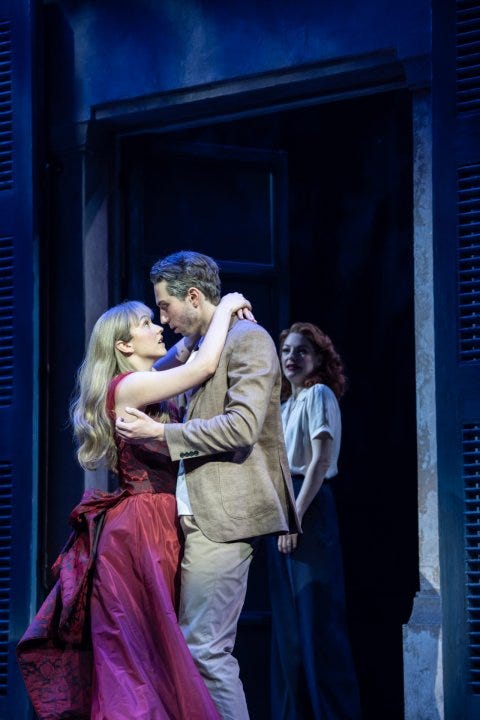
This raises the question of why does a story about the horrific treatment of refugees feel more valid and les shocking than a story about a group of sexually dysfunctional middle class people?
Why are we able to watch The P-Word and be horrified by its subject matter but not the play whereas in Aspects of Love some people have been turned off by both?
First of all both stories are valid and worth telling. Just because grooming and racism are horrible, offensive subjects does not mean that we should not tell stories that show them but we need to be sure WHY we are telling the story. This has nothing to do with keeping up with the times or presenting for a modern audience but everything to do with skilful storytelling.
Much of this comes down to what the late theatre Director and Producer Hal Prince described as metaphor - the central theme or idea on which the story rests. He says in his autobiography, A Sense of Occasion, that finding this metaphor is what would open any piece for him creatively.
In an interview for American Theatre in 2016 he spoke about Sondheim’s Sweeney Todd:
“It’s about vengeance… I always want to find a metaphor. I thought: This takes place in the Industrial Age and everybody is in a factory, and maybe if we did it in a factory we could spread the vengeance to all the people in the cast, even though Sweeney is specifically seeking revenge for a wife and daughter. Maybe all these people are sharing that vengeance because they’re trapped on an assembly line in a filthy factory, breathing filthy air”
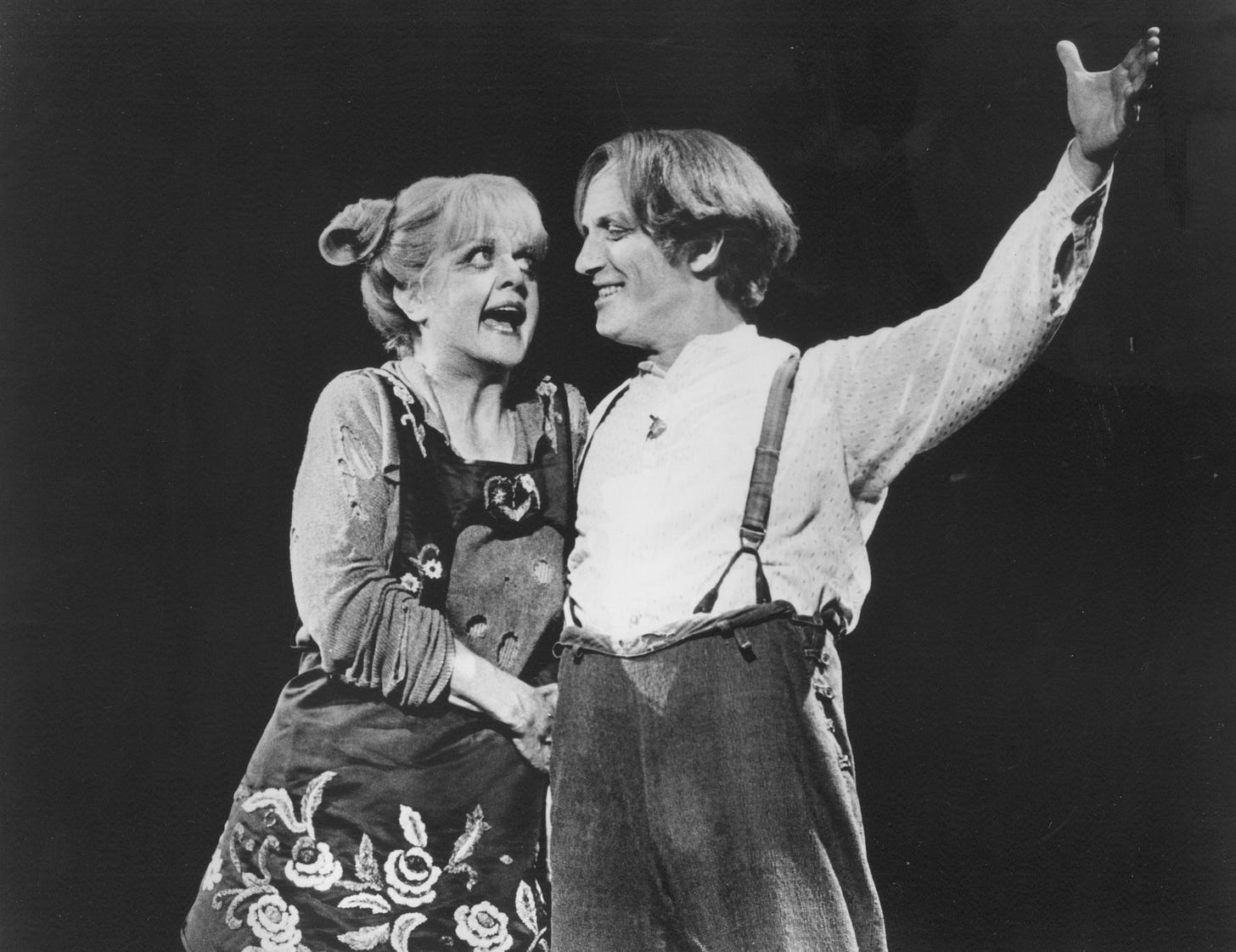
Prince was not directly asking the writers to write in any more vengeance but the cast were asked to play it and vengeance informs how the show developed. This metaphor or point of view then gives sense to the rest of the story. Sweeney Todd features cannibalism, sado-masochism, mental illness and grooming. These are not standard ‘jazz hands’ musical theatre subjects - in fact they are disturbing and nasty - but, despite all the filth, violence and hideous sexual politics, Sweeney Todd has never been described as “one giant ick” because there is a reason for the horror to be included and a point of view to its presence.
Musical theatre’s biggest hits deal with some surprisingly dark subject matter - from West Side Story’s gang warfare, rape and racism to Phantom of the Opera’s disfigurement, obsessive love and brutal murder. With the musical Evita, Hal Prince recognised that the basic story is about a woman who came from nothing to become the de facto leader of one of the world’s richest countries and an international icon. But that version of the story is a collection of events - a wikipedia page of a show. What Prince wanted to demonstrate was that the story’s subject, Eva Peron, cleverly recognised the power of fame itself. So instead of presenting a slightly cynical look at a rags to riches story, the Director leverages the metaphor which in Prince’s words was “how the images you create of a person are divorced from that actual person; you do it with cameras, flash bulbs, and newsreels” Evita told the story of Eva Duarte through the lens of person vs persona- literally Eva Duarte vs EVITA! The show opened in 1978 but that metaphor is still true today - how many influencers, reality TV performers and the like are literally famous for being famous?And even Donald Trump became US President with arguably little more substance than name recognition.
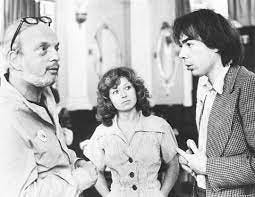
In both Sweeney and Evita there are parts of the story that are uncomfortable. In the P-Word likewise and here also there is a metaphor. It is one that feels very much like Niemoller’s “First they came for…” The play asks the question ‘If this person is not safe today, who will be unsafe tomorrow?’
Our question then, is why can we accept the systemic racism, cannibalism, grooming, violence, corruption and sex in Sweeney Todd, The P-Word and Evita but find it hard to accept it elsewhere. The reason is because storytelling needs what a business consultant might call ‘a purpose’ Why are you telling this story?
The current production of Aspects of Love has some wonderful music and incredible actors. The challenge appears that it never takes us beyond a look at several people having sex in different combinations: older woman/younger man, woman/woman, older man/younger woman etc. I don’t think the sex per se is the problem (or ‘love in its many forms’ as the producers coyly refer to it!) but more that we never really know why any of this is happening. The characters are unchanged and we learn nothing new. If we look atMamma Mia, we meet Donna who 20 years ago had sex with three men in the same week. She becomes pregnant but never follows up with the men to find out which of them might be the father of her daughter. We totally fall in love with her because we discover why she did what she did. Her reason is clear, and makes sense, so we forgive here and through that forgiveness we are also able to forgive ourselves which is the metaphor for the whole show.
The other charge is that Aspects of Love is dated and, as mentioned at the beginning, there is a feeling that the show should not have been revived. I honestly think that suggesting a show should not be performed or a story should not be told is a dangerous path to start walking because we then risk classifying some stories as more valid than others. What might be more constructive is to consider what would make the stories in Aspects of Love engaging and worth telling today. The example of Daniel Fish’s Oklahoma is instructive. For 60 years the show was produced in a traditional corny style with a lot of white people doing a good deal of yeehawing! Personally I never liked it because it never spoke to me. When Daniel Fish found a new metaphor for the show he brought Oklahoma back to life. He presented a diverse group of young people living in the middle of nowhere with nothing to do but work and get horny. Fish’s version showed the sexual energy of the characters and the cruelty of the time. It told its story in a more authentic way that makes sense today AND he did it without changing a word of the script. Daniel Fish gave Oklahoma a new purpose - or maybe he just discovered the purpose that was there all along!
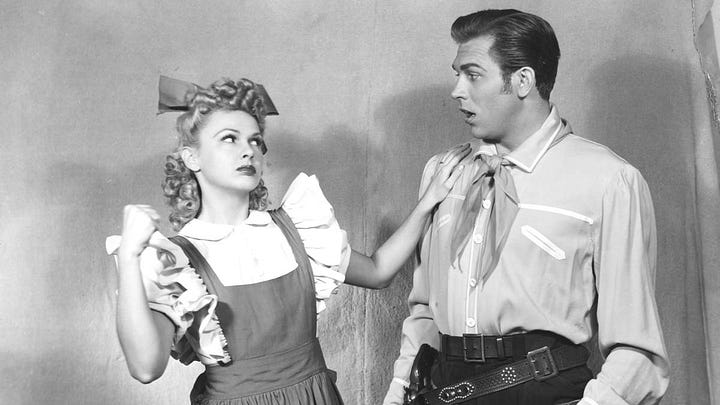
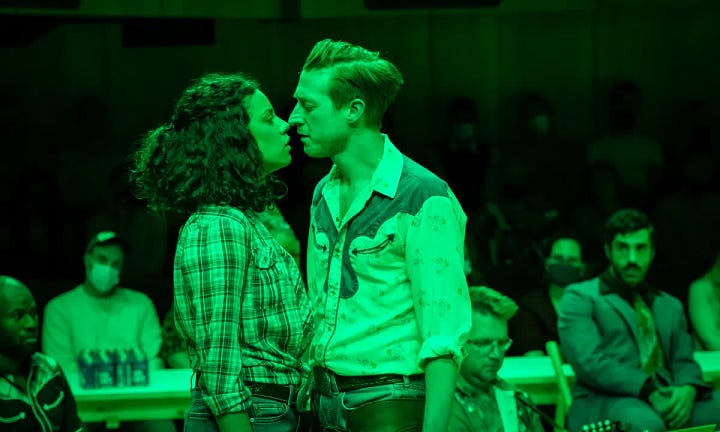
And it is purpose that will take a series of scenes and turn them into an engaging and vital story. When we don’t have a purpose or a ‘why’ to our story we risk it becoming nothing more than voyeurism or, worse, “one giant ick”
To read the full Hal Prince interview click here:




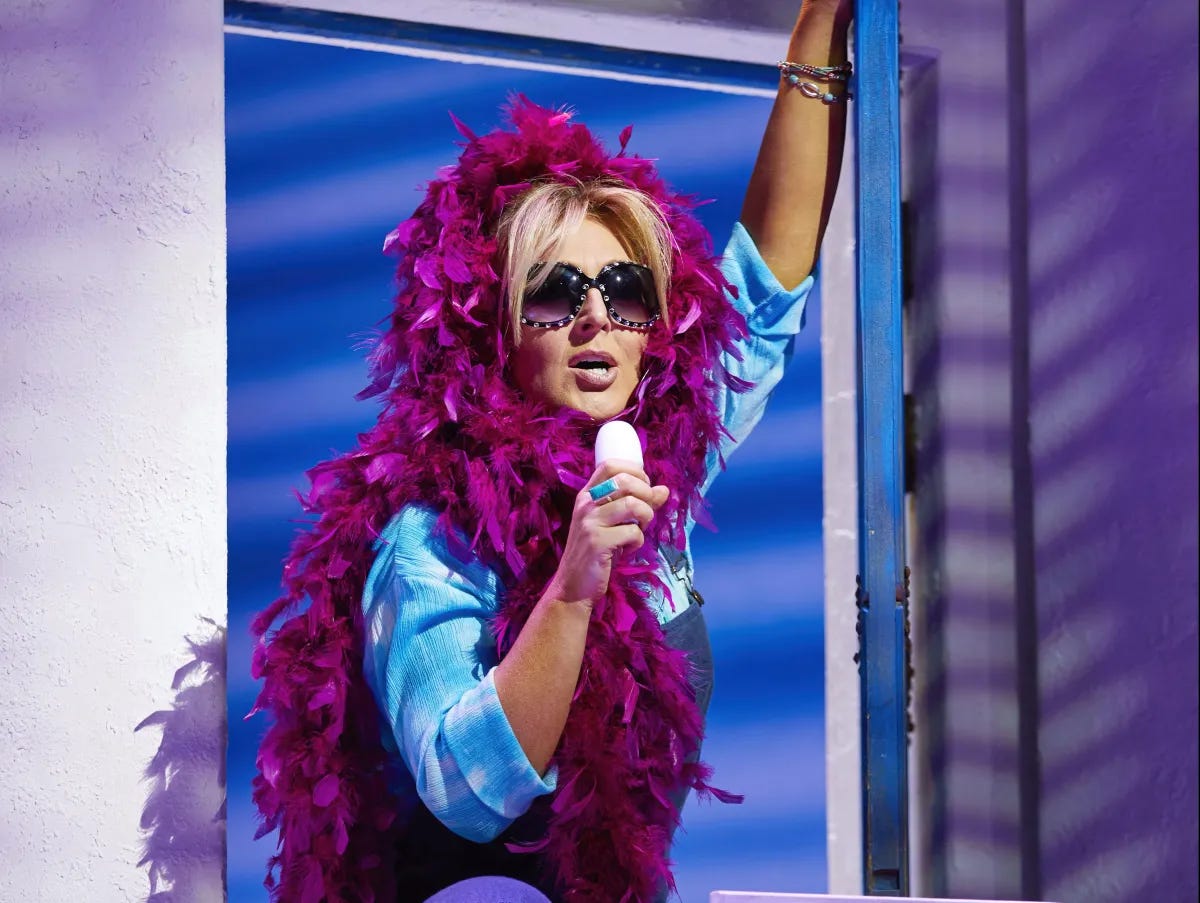
Wonderful essay. Artists are often told to "tell their truths," but some people have icky truths. Sometimes, when an artist's ideas make an audience or viewer uncomfortable, the artist is criticized for using their platform as some sort of public therapy. But while some are irked by what they see, there are always others who need to see it.
Art is also a place where we can safely explore real-life ideas and their ramifications. The inappropriate attraction you describe is, in fact, an Aspect of Love that is probably better examined on stage than in life. We do know that repressing even the expression of such ideas does not drive them from life, after all.
At the point where you're saying "that play should not be performed any longer," you are likely making too big a statement. Maybe what you mean is, "I don't need to see that play." You'd have no idea if it "needs to be performed," because you don't know if somebody else needs to see it.
Very interesting read!